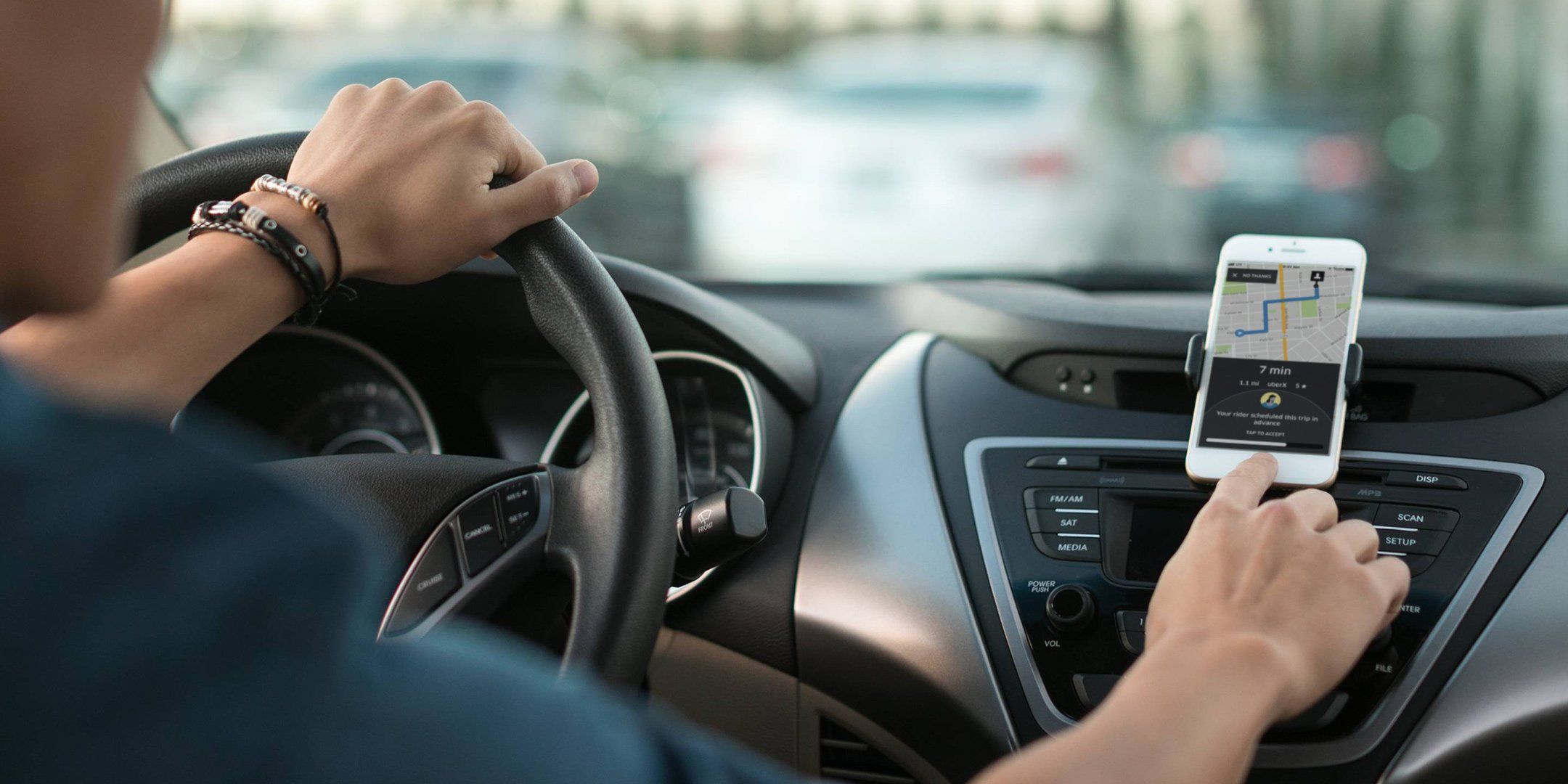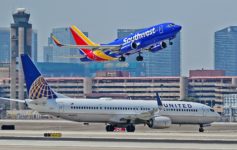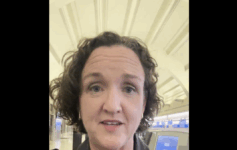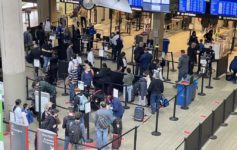Uber has been shown to charge different pricing based on the airline chosen for airport drop-offs. Like Delta, they too should be called before Congress.

Uber Charges Different Prices For The Same Airport Drop-Off
We have seen dynamic pricing include a litany of new models in an attempt to extract every last dime from willing consumers. Gary Leff wrote about this some time ago, but due to recent scrutiny on how travel providers target price differences on a per customer basis, it’s come back to light.
Dynamic pricing is understandable when it’s based on the journey, time of travel, distance, traffic, and type of car – but not by the carrier for which you’re flying. The lone excuse that Uber could use at some airports is that it may take longer to get to one side of the airport than the other. For example, if there were no shortcut options at LAX (there are) and one had to go from Terminal 1 to enter the drop-off area and go all the way around to the other side (probably 20 minutes of slow moving traffic) to get to Terminal 8, that would be a justifiable difference in fare. But that would also speak to one of the three above reasons: time, distance, and traffic.
At my home airport, Pittsburgh, I wasn’t able to replicate the discrepancies on a sleepy Saturday afternoon. However, Nick Reyes of Frequent Miler, and MaxMilesPoints documented differences as recently as 12 days ago.
“To be clear, his example (which is still happening at the time of writing) is for a drop off for two different airlines in the same terminal that show up next to each other on the map but feature a difference in price of more than 14%.” – Frequent Miler
View this post on Instagram
Delta Testified Before Congress, Uber Should Be Next
A Delta executive discussed using AI to affect consumer pricing and the move attracted attention from lawmakers and the airline industry as a whole:
“Currently, approximately 3% of Delta’s domestic ticket sales are governed by AI. By the end of 2025, the airline intends to increase that to 20%, according to Delta President Glen Hauenstein.
Speaking during the airline’s recent earnings call, Hauenstein referred to the AI tool as a “super analyst,” part of what he called a “complete reengineering” of the pricing architecture.” – Aerospace Global News
After telling investors that Fetcherr (the AI tool in question) was revolutionizing pricing and would control one fifth of the airline’s decisions on the process, Delta issued a press release dubiously entitled: Delta responds to misinformation around AI pricing. In that defense, Delta stated that it was not making decisions based on personal traits of bookers but didn’t specify what the dynamic aspect of Fetcherr’s superanalyst model was revolutionizing and why it’s so key.
“To be clear, Delta’s ticket prices are dictated by market dynamics and vigorous competition. In fact, the AI pricing functionality recommends pricing adjustments in both directions to enhance market competitiveness and drive sales, benefiting both our customers and our business. Fares are publicly filed through ATPCO multiple times daily and contain objective, publicly available fare rules that ensure all customers have access to the same fares and offers based on objective criteria provided by the customer such as origin and destination, advance purchase, length of stay, refundability, and travel experience selected.” – Delta Air Lines
What Can Be Done?
There was no immediate result of Delta’s congressional testimony. Uber might have a harder time defending their actions. Even if, for example, it indicated that consumers of airline X were more likely to purchase at a higher price point, that still avoids the normalized reasoning for differentiated fares based on the fundamental differences of the product and offer. If Five Guys were to charge more for a double cheeseburger variably based on position in line (maybe people at the end of the line are more inclined to pay more because they have waited longer to order) it would seem obvious that this was problematic.
In the video above, two different phones were used meaning that perhaps it charged more based on the user and not just the airline. That too seems like it would run afoul of consumer pricing protections. Could Uber prove that it had a justifiable legal reason for the surcharge or discount?
Like everything in the United States, it is unlikely that Congress will be the one to force Uber’s hand on the matter but rather a class action lawsuit by affected parties. The question is, how many documented cases could there be sufficient to warrant a significant case against Uber (or any other brand that tries to sell this way?)
The most useful proposition is that Congress can draw attention to the matter and force executives to go on record stating that they don’t, in fact, charge unfairly using these methods. That can later be used in a court of law and with money on the line, the brand might finally act to correct the unfair charges.
What do you think?




Uber is an institutionalized scam.
As is the airline industry .
As is everything which uses AI .
As long as people are willing to take it in the a$$ and use them why blame the company? Some of you people want the government to save you from everything while asking for smaller government.
What the hell did you do before Uber? Oh that’s right, you bitched about the cabs. Paying for convenience is the cost of the life you chose as “businessmen”, while milking the benefits of travel for said job.
Grow the F up and stop crying about it when almost everyone of you work for, or own, a company that does that same exact thing to your customers, F’ing them at every opportunity.
Oh go back in your trailer park, mate.
Get Cancer.
And you guys wonder why I call the BS around here out. A bunch of people who think they elite and important when most of you are just scammers in a suit.
Sorry Jay, Douchebag Dave Edwards doesn’t live in a trailer park, he can’t afford that degree of “luxury” and his character doesn’t even measure up to the low standard of “trailer park trash”, he/she/it/they lives under a rock.
AndyS, not sure who you’re wishing cancer upon, but if it’s Douchebag Dave Edwards, no need. He/She/They/It obviously already has cancer, brain cancer which has obviously affected all cognitive and intelligence and social functions which were already severely limited by he/she/it/they’s alcohol/addiction/psychiatric problems.
Douchebag Dave Edwards, only nerve hit here obviously is yours, hopelessly trying to defend and explain your social status and lifestyle and income. And proving with your every comment that your nickname is absolutely accurate and completely deserved and that you have nothing better to do with your pathetic waste-of-oxygen life than to post abhorrent and revolting comments here over and over again every single day. Thank you for confirming once again that MAGAs are stupid hateful racist morons. Trolling or not, the extent and frequency of your comments are indicative of severe psychiatric and/or addiction problems. Your insults, undoubtedly projection, speak much more to your (lack of) character than to anyone (on these anonymous comments) you attack. You should crawl back under whatever rock you crawled out from you SHPOS.
Must have hit a nerve, what non profit do you “work” for?
Which MAGA terror group do you have ties to?
All airlines use a proprietary method to calculate pricing. They have done this for years. The competition would LOVE to know their competitor’s methods for calculating prices. Sorry “Sparky” that is confidential information. When a passenger books a ticket, many times the passenger will state, “I’d like to put that on hold for 24 hours (the usual limit). The reservation agent and web site will state that the reservation will be held for 24 hours BUT the price could change during that time. To most passengers, that statement goes in one ear and out the other. Then they complain…”You didn’t tell me that” YES WE DID! There was no passenger information used…just dynamic pricing and the time limit. So, what is the difference between a reservation agent/web site stating that the price will change and AI doing the same thing? NOTHING! The difference is…the AI is much more accurate as to WHEN the price will change and by how much. If UBER and any other company does this, so what? The “early bird” gets the worm. Some airlines will allow a change if a lower price is available. This whole AI pricing is “much ado about nothing”.
dynamic pricing means “stiff the customer”; skip lag means “outsmart the airlines” the airlines can’t have it both ways.
Um, not really. This is supply and demand in full effect. You can absolutely have different prices for the same drop point. One of the reasons is how much Uber thinks they need to offer drivers to incent them take the ride. So it’s entirely possible that the first query to Delta required a higher offer to drivers than the second query a few seconds later to about the same location. I’m not saying it makes sense – you’d have to believe the system is updating it’s bid/ask at an insanely high rate to decide that it could offer drivers a lower rate a few seconds later- but I imagine that is what is going on.
How do travel providers justify dynamic pricing, and why is it considered unfair when fares vary by airline rather than time, distance, or traffic? Regard Ilmu Komunikasi